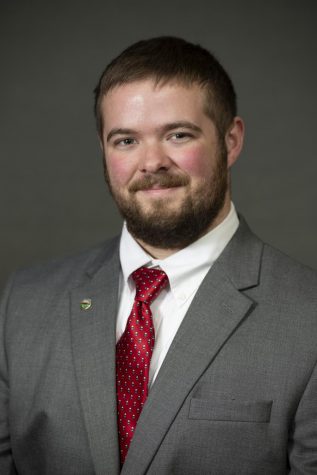WSGA book surveys help reduce cost of textbooks
March 5, 2019
As many on campus have noted, everyone has received textbook survey emails from the Washburn Student Government Association and the Kansas Board of Regents Students Advisory Committee. These surveys are meant to gather information related to college students’ experiences with textbook affordability. This is an issue that affects many on campus at Washburn and other colleges across the country as buying textbooks can be an added expense that costs students hundreds of dollars every year. The survey’s results, which will be presented March 20 to the Kansas Board of Regents, will help the board determine if a state-wide Open Educational Resources Taskforce is necessary to help lessen the costs of textbooks in Kansas.
Every year students spend upwards of at least $100 on textbooks and other class materials for the courses they have enrolled in. This leads many students scrambling for books every semester, frantically making price comparisons before hastily putting in an order before or after the semester starts. The stress, cost and hassle of buying new textbooks every year may be about to change.
WSGA hopes to gather new information through their book survey this year in order to create a better option for students to use when looking for textbooks every semester. They have been working toward making textbooks more affordable for students across Kansas by releasing surveys to all four-year colleges such as the University of Kansas, Kansas State University and Washburn University.
Zac Surritt, the Student Body President, said that their number one goal is to find out where the textbook affordability for students is.
“We have a couple of different options. One, professors in Kansas can apply for a federal grant system that will grant them funding to produce their own textbooks to sell to their classes for a much reduced fee than would normally be expect,” Surritt said. “Another option would be to make sites such as OpenStax more prominent as they allow professors from across the country to share their published books with each other and other universities for a fee of only $10 for the entire semester.”
Colby Edinborough, freshman computer science major, said that textbooks can be very expensive and tedious to deal with.
“When entire classes revolve around textbooks, even requiring codes from said books to do the homework, the affordability of said books is extremely important,” Colby said. “We already pay for the class and on top of it is expensive reading material.”
Colby went on to talk about how he spent over $300 this semester alone on textbooks, online resources and other classroom materials. He described looking for the right books as a draining process that was extremely costly and unappealing.
Other students such as Colby run into the same issues, but through WSGA’s efforts, and the efforts of other student organizations around the state, we can expect real change to happen in the coming years. Textbooks may not have to be so expensive in the future and can become more affordable. Taking WSGA’s surveys are the first step in the process so they can have adequate information to work with when deciding how best to approach this issue.



